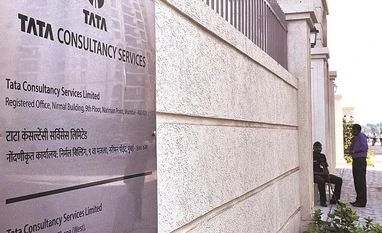Even though industry bellwether Tata Consultancy Services (TCS) may be considering buyback of shares, other leading information technology (IT) services players are unlikely to follow suit at this juncture.
According to industry experts, a buyback of shares by other Indian IT services companies does not look attractive at this point in time, especially when they are considering conserving cash or making prudent inorganic play during this challenging business environment. Besides, the introduction of the buyback tax by the government has also made it less attractive this year, they add.
In a regulatory filing last week, TCS said the company would consider buyback of shares during its board meeting scheduled on Wednesday. It, however, did not divulge the quantum of shares it may look at buying back.
“Buybacks were a more lucrative option than dividends as they were tax-free. Moreover, the latter involved distribution tax. But with the buyback tax introduced last year, it has placed both options on a level playing field,” says Shriram Subramanian, founder and managing director, InGovern Research Services — a Bengaluru-based proxy advisory firm.
He, however, says the buyback is a positive sentiment for the stock, as the company (TCS) seems to be showing signs of resilience when other sectors are still grappling with the Covid-19 pandemic. “It is a way to reward shareholders and give back the excess cash they are sitting on,” adds Subramanian.
In the Union Budget presented in July last year, Finance Minister Nirmala Sitharaman had introduced a buyback tax of 20 per cent for listed securities. The tax will be levied on the amount of income distributed. The term ‘distributed income’ refers to the difference between the quantum paid by the company on buyback minus the amount raised by the company on the issue of such shares.
Another reason why there may not be a round of buybacks from the IT sector similar to the one witnessed last year is because most companies’ stocks are currently trading at steep valuations, say industry experts.
In June 2018 when TCS time had announced its Rs 16,000-crore buyback last time in June 2018, it had triggered a wave of buybacks among peers, such as Wipro, Infosys, and Tech Mahindra, and even among smaller IT firms, such as Sasken Technologies, Mphasis, and Cyient.
“It (TCS’ announcement) will not trigger a domino effect, as stock prices of IT firms have already hit lifetime (or 52-week) highs. They are basically done by the management to send out the message that the market is not giving fair value to their stock. Buybacks at this stage don’t translate into any benefit to IT firms, as most companies are already conserving cash,” says V Balakrishnan, former chief financial officer at Infosys.
“If Tata Sons dilutes some stake (in TCS), it may send out the wrong signals. So it might participate in the buyback and get cash in return to make fresh investments (at the promoter level),” adds Balakrishnan.
Tata Sons has evinced an interest in buying out Shapoorji Pallonji Group’s 18.4-per cent stake in the holding company of the 150-year-old conglomerate. The Supreme Court battle comes up for hearing later this month.
TCS's buyback
* TCS may consider a buyback proposal during its board meeting on Wednesday.
* Other large Indian firms are unlikely to follow suit this time around
* Introduction of buyback tax, steep valuations said to be reasons for this
*When TCS announced a buyback in June 2018, it was followed by Infosys, Wipro and Tech Mahindra among others
Unlock 30+ premium stories daily hand-picked by our editors, across devices on browser and app.
Pick your 5 favourite companies, get a daily email with all news updates on them.
Full access to our intuitive epaper - clip, save, share articles from any device; newspaper archives from 2006.
Preferential invites to Business Standard events.
Curated newsletters on markets, personal finance, policy & politics, start-ups, technology, and more.
)